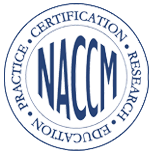Parkinson’s Disease Awareness: Why it Matters
Parkinson’s disease impacts millions of people worldwide and could be affecting someone you know, whether it’s a family member, friend, or acquaintance. This chronic and progressive neurological disorder can significantly impact a person’s quality of life, making it essential to raise awareness about the disease and its effects.
Raising awareness of and educating people about Parkinson’s disease is incredibly important as it helps reduce stigma, provide support and resources to those suffering from it, and improve research. This blog post will delve into the importance of Parkinson’s disease awareness and why it matters for those living with the condition, their loved ones, and society as a whole.
A Brief Overview of Parkinson’s Disease
Parkinson’s disease (PD) is a progressive neurological disorder that affects the motor system, leading to tremors, reduced mobility, stiffness, and difficulty initiating and maintaining movement. It is caused by a decrease or loss of dopamine production from neurons in the brain. PD can also cause cognitive impairment, which affects the ability to think, remember, and reason.
The symptoms of PD vary significantly from person to person but can include the following:
- Trembling in hands, arms, and legs
- Impaired speech
- Slowed movements
- Reduced facial expressions
- Balance problems
- Anxiety or depression
- Paranoia and hallucinations
- Fatigue
- Sleep disturbances
As the disease progresses, it can increase difficulty with daily activities. For instance, PD can make walking, eating, or talking challenging. Those afflicted may have trouble controlling their movements or be at risk of falling due to a lack of balance or coordination.
PD is not curable but can be managed through medication and lifestyle changes such as physical therapy and exercise. The help of an aged care manager and supportive family members can also be invaluable.
The Importance of Early Diagnosis and Treatment
The importance of early diagnosis and treatment of Parkinson’s disease cannot be overstated. The sooner a person is diagnosed, the earlier they can begin to manage their symptoms and slow down the progression of the disease. Early diagnosis also means that treatment options are likely to be more effective, allowing individuals to maintain their independence and quality of life for longer.
In addition, early diagnosis can enable proactive lifestyle adjustments, such as diet and exercise, that can help slow down the progression of the disease. It can also help the person to make informed decisions about their care, such as seeking appropriate medical attention or residential care.
It’s essential for individuals to seek treatment immediately after receiving a diagnosis. Delaying treatment can result in a faster progression of symptoms and may limit the effectiveness of treatment options. Early treatment can also help individuals cope with the emotional impact of a Parkinson’s disease diagnosis, providing them with the tools and support they need to manage their condition.
The Impact of Parkinson’s Disease
PD can significantly impact the lives of those living with it, as well as their families and caregivers. It can lead to isolation, depression, and anxiety due to communication, memory, and physical ability changes. Those living with PD may also experience difficulties with daily activities such as eating, grooming, or dressing.
In addition, those with PD can find it hard to manage their symptoms on their own, making them more dependent on others for help. This can put a strain on caregivers and family members, who may be left feeling overwhelmed or exhausted from providing support.
Finally, the financial impact of PD should not be overlooked. Those living with PD may require additional medical care, support, and adaptations to their homes or other accommodations. These can be costly and may add financial strain to those already struggling with the disease.
Raising awareness about Parkinson’s disease is essential for those living with it and their families. Knowing the signs and symptoms, seeking timely medical advice, and getting an early diagnosis and treatment can make a world of difference when it comes to managing the disease and its associated impacts.
Current Research and Development on Parkinson’s Disease
In recent years, there have been significant developments in the field of Parkinson’s disease research and treatment.
For example, the development of stem cell technology has tremendously improved treatments for PD by enabling medical professionals to selectively target certain parts of the brain. This helps to slow down or even stop the progression of symptoms associated with the disease.
Research is also being conducted into the use of virtual reality to help those with PD improve their balance and coordination. By creating immersive, simulation-based environments, individuals can practice walking and other skills to better manage their condition.
Advances in medical technology are also helping researchers better understand the underlying causes of PD. Exome sequencing, for example, is a technique that allows researchers to identify genetic mutations linked with PD. This information can help them develop new treatments and medications to manage the disease.
Finally, researchers are investigating the potential of using non-invasive brain stimulation techniques (such as repetitive transcranial magnetic stimulation) to treat movement disorders associated with PD. Recent studies have shown potential for this technique in reducing tremors, stiffness, and other symptoms of PD, although further research is needed before it can be used as a therapy.
The Importance of Understanding and Spreading Awareness of Parkinson’s
Increasing awareness and understanding of Parkinson’s disease is essential in order to reduce stigma, improve access to treatment, and provide better support for those living with the condition.
Spreading awareness will help people recognize the signs and symptoms of PD and seek medical advice at an early stage. This, in turn, can lead to a quicker diagnosis and treatment and better management of the condition.
Raising awareness can also help reduce the isolation felt by those living with PD. Making more people aware of the challenges associated with the condition allows them to provide support, understanding, and empathy toward those affected.
Getting Involved: Spreading Parkinson’s Awareness
There are several ways in which individuals can get involved in raising awareness and advocating for those living with PD.
Support groups are one way to raise awareness and provide emotional support for those affected by Parkinson’s disease. By joining a local support group, individuals can learn more about the condition and connect with others who have similar experiences.
Fundraising events are another way to support those living with PD. Individuals can help raise money for research and development into new treatments and medications by hosting or organizing fundraising events.
Finally, volunteering is a great way to spread awareness about Parkinson’s disease. Numerous organizations provide support for those affected by PD, and volunteers can help spread awareness of the condition and support individuals living with it.
Parkinson’s Awareness and Support – a Care Manager’s Role
Supporting those affected by Parkinson’s disease is a complex undertaking, and a care manager can be invaluable in helping families and individuals manage the condition.
Senior care managers provide emotional support to those living with PD, helping them cope with their emotional, physical, and financial challenges. They also help coordinate medical appointments and treatments and provide companionship and support with daily activities, such as shopping and housekeeping.
When considering care management services, it is vital to find a provider who is experienced in dealing with Parkinson’s disease and understands the unique challenges associated with the condition. Reflections Management and Care provides professional, personalized care management services that are tailored to meet the individual needs of those living with PD. To learn more about our services or get started, please contact us today.














